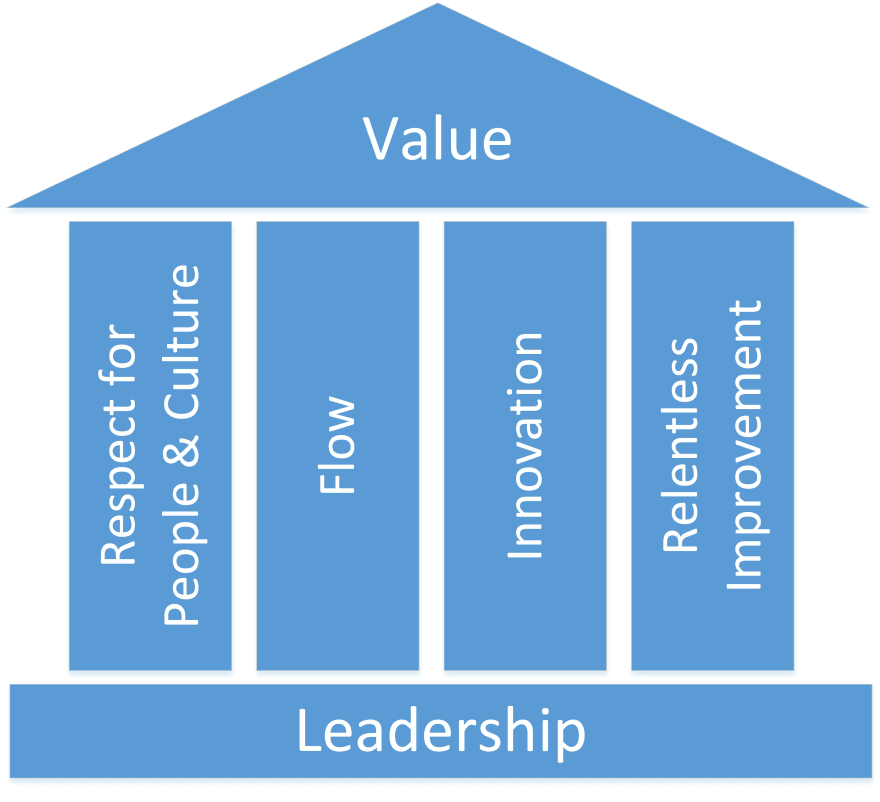This follows on from my earlier notes about Lean. Reading further I realize that what I described there is only one aspect of what Lean is about. The Lean philosophy also offers a set of other principles, designed to support finding flow.
The SAFe literature uses a classical temple as a metaphor for how the Lean principles fit together.

The roof of the temple represents the goal of delivering value to the customer. Everything else supports this goal.
The base of the temple is 'Leadership' - because it is the foundation. Leadership is not a management or a specific role. Instead, 'lead' activities are something that everyone does.
Everyone plans the work, and reports progress. The team understands the organization's strategic aims. The team has the knowledge to decide what is most valuable or important thing to work on. They can decide how long it will take to deliver. Any 'lead role' job is not to lead, but to act as a coach or servant to the team. They are responsible for smoothing the way, sorting problems so the rest of the team can deliver.
This is why the first pillar 'Respect For People and Culture' is there. It is people that do all the work. This covers building mutual trust with the people you work with and helping them to reach their goals.
Managers allow teams to evolve the practices that work best for them. A manager's main role is to provide appropriate guidance and support.
Flow is all the stuff in my last notes. Focusing on understanding the value stream and aligning people to deliver it. Reducing batch sizes to match customer demand. Monitoring where the queues or bottlenecks are and always adjusting and reevaluating.
Innovation is about allowing people the time and space to be creative. Focusing on flow can mean people are busy dealing with the urgent so good new ideas are never developed. Teams need the space to try out ideas, and the support from the organisation to test and evaluate the most promising ideas that emerge. Successful organizations focus real effort on growing new ideas, and the most successful are willing to change their whole direction to take advantage of new opportunities.
Relentless Improvement is back to the idea that improvement is an ongoing activity. The focus on the whole process isn't a one-off exercise. Successful organizations reflect at key milestones. They study and learn and consider. They also act fast on what they find to determine and remove the root causes of any issues.


Top comments (0)